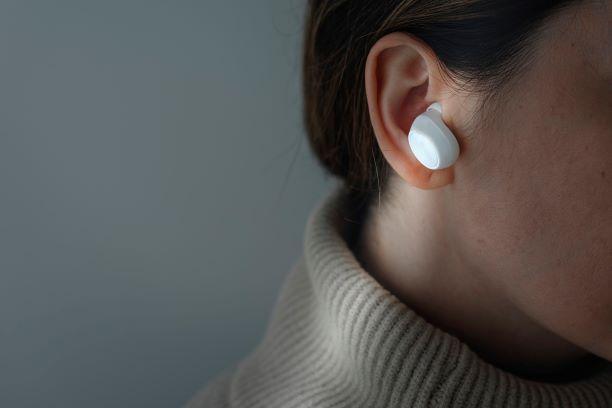Hearing protection is essential in many situations, from sleeping in noisy environments to blocking out sound at work. However, people with sensitive ears often struggle to find earplugs that provide comfort without causing irritation. This article explores whether silicone earplugs are a suitable choice for individuals with sensitive ears and their advantages over other types of ear protection.
Understanding Ear Sensitivity
Some people experience discomfort when inserting earplugs due to ear canal sensitivity. This can be caused by various factors, including allergies, inflammation, or naturally narrow ear canals. Traditional earplugs made of foam or wax may cause irritation, making it necessary to find a softer, hypoallergenic alternative.
What Are Silicone Earplugs?
Silicone earplugs are made from soft, flexible silicone material that molds to the shape of the outer ear or ear canal. Unlike foam earplugs, which expand inside the ear, silicone earplugs create a seal over the ear opening, reducing pressure and discomfort. These earplugs come in reusable and disposable options, providing versatility for different needs.
Benefits of Silicone Earplugs for Sensitive Ears
1. Hypoallergenic and Non-Irritating
One of the biggest advantages of silicone earplugs is that they are hypoallergenic. Unlike some foam earplugs that contain latex or other allergens, silicone earplugs are free from irritants. This makes them a safer option for people with skin sensitivities or allergies.
2. Soft and Flexible Material
Silicone is softer and more flexible than foam, reducing the risk of irritation. Since these earplugs do not expand inside the ear canal, they are more comfortable for prolonged use, especially for people with sensitive ears.
3. Customizable Fit
Silicone earplugs can be molded to fit different ear shapes, ensuring a snug yet gentle seal. This prevents discomfort caused by pressure inside the ear canal while still providing effective noise reduction.
4. Long-Lasting and Reusable
Unlike disposable foam earplugs, silicone earplugs can be cleaned and reused multiple times. This makes them a cost-effective and eco-friendly option for regular use.
5. Waterproof and Versatile
Another benefit of silicone earplugs is their waterproof nature. They can be used for swimming and showering, protecting the ears from water while preventing infections and irritation.
Comparing Silicone Earplugs with Foam and Wax Earplugs
While silicone earplugs offer many advantages, it is important to compare them with other options to determine their suitability for sensitive ears.
| Feature | Silicone Earplugs | Foam Earplugs | Wax Earplugs |
| Comfort | High | Medium | High |
| Hypoallergenic | Yes | No | Yes |
| Reusability | Yes | No | Limited |
| Noise Reduction | Moderate | High | Moderate |
| Waterproof | Yes | No | Yes |
From the comparison above, silicone earplugs offer a balance between comfort, durability, and versatility. While foam earplugs may provide better noise reduction, they can be uncomfortable for people with sensitive ears.
How to Use Silicone Earplugs for Maximum Comfort
To ensure silicone earplugs provide the best experience for sensitive ears, follow these steps:
-
Clean Hands and Ears – Before inserting the earplugs, ensure your hands and ears are clean to prevent infections.
-
Mold the Earplugs – Roll or shape the silicone earplug to fit over your ear canal opening.
-
Press Gently – Place the earplug over the ear canal and press lightly to create a secure seal.
-
Avoid Deep Insertion – Unlike foam earplugs, silicone versions do not need to be pushed deep into the ear canal.
-
Remove Carefully – When removing, peel the earplug away slowly to avoid discomfort.
Potential Downsides of Silicone Earplugs
While silicone earplugs are an excellent choice for many individuals, there are some drawbacks to consider:
-
Lower Noise Reduction: They may not block as much noise as foam earplugs, making them less ideal for extremely loud environments.
-
Stickiness: Some people find the sticky texture uncomfortable, though this helps create an effective seal.
-
Maintenance: Since they are reusable, they require regular cleaning to prevent bacterial buildup.
Who Should Use Silicone Earplugs?
Silicone earplugs are best suited for:
-
People with sensitive ears who experience discomfort with foam earplugs.
-
Individuals looking for hypoallergenic ear protection.
-
Those who need waterproof earplugs for swimming or bathing.
-
Anyone who prefers reusable and eco-friendly earplugs over disposable ones.
Conclusion
For individuals with sensitive ears, finding the right earplugs can be challenging. Silicone earplugs provide a comfortable, hypoallergenic, and reusable solution that works well for noise reduction and water protection. While they may not offer the highest level of noise blockage, their gentle fit and versatility make them an excellent option for daily use. By selecting high-quality silicone earplugs and using them properly, those with sensitive ears can enjoy effective hearing protection without discomfort.



